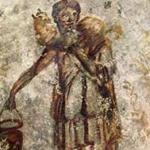 From a brief retrospective here:
From a brief retrospective here:
In an issue honoring a remarkable scholar, I have been asked to do two things: honor Michael Ward and tell how he and Apologetics came together at Houston Baptist University. This requires saying something about why cultural apologetics was (with cinema and new media) such a priority for me during my time at HBU. Michael Ward was a major part of answering a question I had all my life about education: how can we continue what Lewis and Tolkien started? In God’s good grace, Ward was an answer that came with many other wonderful people who keep giving a fuller answer to that question.
Michael Ward is a churchman, not much celebrated as a category just now, but that means he is a man of community: living and dead. To know Michael Ward is to know the Church, humble and glorious.
Imagine finding The Lord of the Rings in the library in seventh grade, opening it on the bus ride home, looking up to the rainy window, and knowing you had lost your weekend! Narnia had already captured my heart and my brother and I did what many children do––bump into the back of closets looking for other worlds. Tolkien ended any chance that the scientism of another writer I loved, Isaac Asimov, would harden my heart. I wanted wonderful science and sensible wonder: Lewis and Tolkien showed this was possible.
Around the same time, I ran into Plato and made a foolish mistake. The dialogues were brilliant, but as a kid I assumed the thing to do was to memorize the responses! I could then deploy them in the proper situations, yet the proper situations never came. Upstate New York turned out to have a shortage of ancient Athenian people who share the assumptions of Plato’s characters!
This taught me a lesson: arguments are for people, not people for arguments. Through intuition, the imagination can quickly jump several steps and see what can later be confirmed through careful arguments. That Hideous Strength saw the future: providing the arguments simply took time.
That bus ride and my later experiences in education left me dissatisfied. Lewis and Tolkien were gone to glory. Where could their equals be found? Less ambitiously: where were those people who would develop the imaginative apologetics they pioneered? Couldn’t we have analytic philosophy and Narnia too?
I was waiting for people like Michael Ward, but I did not know it at the time.
Read the rest!












